FacebookTwitterTwitterYouTubeNewsletter
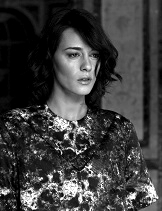
Edita Malovčić was born in 1978 in Vienna. She is an Austrian actress and singer-songwriter of Bosnian origin. Malovčić studied musicology as well as special and curative education while taking acting lessons. In 1999, she made her breakthrough in Barbara Albert’s Northern Skirts. This was followed by numerous roles in cinema and TV films and series in Germany and Austria, ranging from Rabbit Without Ears 2 to The Bone Man, from Inspector Rex to Tatort. Under her stage name Madita she released her first, internationally very successful album in 2005, three more followed.
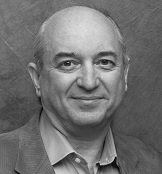
Serge Rakhlin lebte in Lettland, bevor er in die USA emigrierte. Er hat einen Journalismus-Abschluss von der Universität Lettlands und einen MA-Titel der University of Southern California. Zurzeit ist er Vorstand des Foreign Language Film Committee of the Hollywood Foreign Press, welches die Golden Globe Awards ausrichtet. Rakhlin arbeitete zuvor unter anderem als Drehbuchautor, als ausführender Produzent der TV-Übertragungen bei den Golden Globes, als künstlerischer Leiter bei KMNB Radio, als Chef-Redakteur bei Panorama Newspaper und als Hollywood-Analyst und Beobachter für Voice of America.
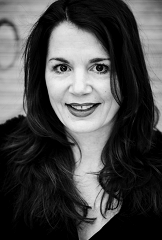
Sandra Schuppach studied film studies in Bordeaux and Mainz and completed her studies with a dissertation on Tom Tykwer. She became a producer for commercials in Frankfurt until she finally switched to feature films in Berlin, where she worked for various TV and motion picture production companies. In Vienna, she started as a producer for developing stories until she founded her own company in 2012. The agency Sandra Schuppach is specialised in the representation of all Head of Departments, meaning all trades “behind the camera”, on the German-speaking world and on cinema.
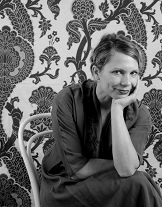
Antje Mayer-Salvi studied philosophy and art history at the FH Berlin, as well as cultural journalism crossmedia, design, and development in Austria. She is a critic and managing director of Redaktionsbuero Ost in Vienna and editor-in-chief of C/O Vienna Magazine. From 1998 to 2009 she worked for Die Zeit, Profil, Vogue, and other media outlets as a cultural correspondent in Prague, Kiev, Berlin, and Vienna. From 2004 to 2009 she was editor-in-chief of Report: Magazine for Arts and Civil Society in Eastern Europe. She is the editor of several books and is currently working on two documentary films.
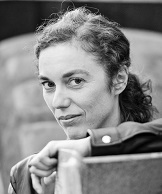
Doris Kittler was born in Vienna in 1969. After her studies in stage and costume design, she started working in theatre and photography. For two years, she lived in Tomsk, Sibiria, where she was a lecturer and also shot her first documentary Leichte Winter about individual lives in the former Soviet Union. Her works usually focus on the theme of best practice whether in education, interculture, activism or civil courage (1+1=100 oder Die Schule des Lebens, Auf den Barockaden). For the last two years she has been a curator for the Jewish Film Festival in Vienna.
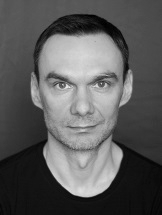
Askold Kurov was born in Uzbekistan in 1974 and has lived in Russia since 1991. After studying philology, theology, and theatre he took a degree in documentary Filmmaking at the Marina Razbezhkina Film School in Moscow. In 2012, he was one of the directors of the award-winning documentary Winter, Go Away! His next films Leninland and Children 404 also received critical acclaim and were screened at numerous festivals. His work focuses on human rights issues and social conflicts in contemporary Russia. At the LET’S CEE Film Festival 2018 he unveils The Trial: The State of Russia vs Oleg Sentov.
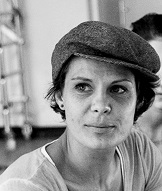
Born 1978 in East Berlin, Jenny Gand studied German literature, philosophy and art history in Cologne. After moving to Vienna in 2006 she worked as assistant director at Burgtheater and completed a Master's degree in film and TV production. Since 2008 she is working as a director. Her first feature length documentary, Wild Mint, had its theatrical release in 2010. She worked on many different projects such as an animation series for kids, short films, and fashion videos. Currently she is working on her first feature film Mauerland. Gand is co-chairwoman of the Austrian Directors Association (ADA) and is a member of FC Gloria, a network for women in film business.
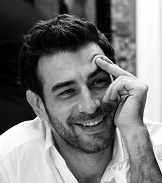
Janko Popović Volarić was born in Zagreb in 1980 in the former Yugoslavia. After his graduation, he worked for several years in a publishing house as a graphic designer. In 2013, he completed his acting studies at the Academy of Performing Arts in Zagreb. He is an author and actor and has made a name for himself with both TV series and feature films, such as the telenovela Ordinary People, The Exorcism, Vis-à-Vis, and his latest movie Comic Sans, which he will present at LET’S CEE. He is also a jury member at the Croatian edition of the talent show Supertalent.
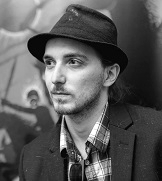
Marian Wilhelm is a film critic based in Vienna and Innsbruck. Since 2013, he has been working for the daily newspaper Dolomiten in South Tyrol/Alto Adige, the Free Radio Innsbruck and the Austrian daily Tiroler Tageszeitung with coverage of international film festivals. With a background in comparative literature studies and a thesis titled “Larger than Life. The Myth Lawrence of Arabia”, he also worked for a film festival in Innsbruck and co-curated the exhibition “The Sölden Dream Factory: From Hitchcock and Geierwally to James Bond”. Additionally, he has been a paramedic with the Austrian Red Cross.
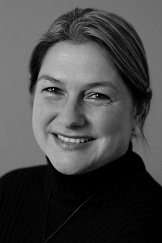
Producer Simone Baumann was born in 1963 and raised in Zschopau, Saxony. She studied philosophy in Rostov on Don, and in the early 1990s she worked as a lecturer in Moscow and at Berlin’s prestigious Humboldt University, before she started a career in documentary film with Leipzig-based broadcaster MDR. From 1997 till 2011, she was managing director of the independent production company Le Vision. Since 2011 she has worked as executive producer for Saxonia Entertainment in Leipzig, where she oversees all of the company's documentary projects. She is the representative for Eastern Europe at German Films.
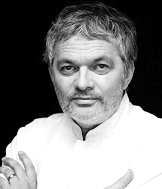
Werner Brix was born in Vienna in 1964 and grew up in Klosterneuburg. From 1991 to 1993 he was director of the cabaret Spektakel. Since 1995 he has brought ten of his own solo cabaret programmes to the stage. For his cabaret work, he has already received several awards. Brix also works as a theatre actor and as a stage director for film and television and runs the film production company Brix Production. He is the organiser of an annual charity evening in aid of Entwicklungshilfeklub and is a co-founder of the Otto Tausig Funds Entwicklungshilfe der Künstler.
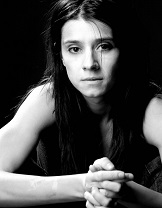
Born in Sofia in 1977, Vesela Kazakova already performed on stage at the age of four. After completing the National Academy for Theatre and Film Arts, she took on international film and theatre roles. In 2005, she won the Silver St. George for Best Actress in Moscow. In 2006, she was one of the EFP Shooting Stars. Meanwhile, she has been working as a director and producer. Her documentary Uncle Tony, Three Fools and the Secret Service competed in the Warsaw International Film Festival. Together with Mina Mileva, she presents her multiply awarded documentary The Beast Is Still Alive at LET’S CEE.
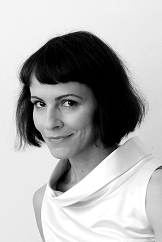
Nicole Albiez lives and works in Vienna. Born in Vorarlberg in 1980, she studied journalism and communication sciences, as well as theatre, film and media studies. She worked as a journalist and editor for the publisher Falter Verlag, the production company Superfilm (Sendung ohne Namen, ORF), and echomedia which oversees Wien live and Meinl Magazin. She also created the weekly film quote calendar Film Lovers Are Sick People and has been chief-editor for the Austrian entertainment and cinema magazine DOT.magazine since its founding in 2014.
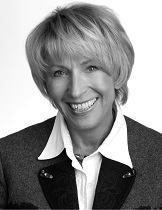
Liliana Nelska was born in Budapest and is an Austrian actress of Polish descent. She completed her acting training at Max Reinhardt Seminarin Vienna and an interpreting degree in Vienna and Rome. She became widely known due to the role of Irma in the Austrian TV series Ein echter Wiener geht nicht unter in the 1970s. Later, she acted in TV hit shows such as Ringstraßenpalais and in other films, amongst others, directed by Axel Corti and Peter Patzak. In addition to her artistic work, she has been working as an interpreter and translator for Polish, Hungarian, Italian and English for many years.
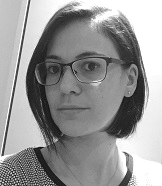
Laura Sabetzer, born in Styria, studied journalism and communication sciences as well as theatre, film and media studies at the University of Vienna, followed by a sabbatical year of travelling the world. During her journey she worked for the New Zealand International Film Festival in Wellington amongst others. She has been working for Austrian film distributors since 2012: first for POOOL Film and since 2013 for the Constantin Film-Holding in booking and distribution. As a passionate festivalgoer she watches an average of 100 films at the cinema per year.
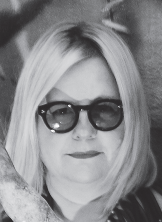
Film director and screenwriter Veronika Franz was born in 1965 in Vienna. The former film journalist, directing assistent, casting director, philosophy student and sales assistant became known as co-author and artistic associate for many of Ulrich Seidl’s films (including Dog Days, Import Export, Paradise: Love, Paradise: Faith, Paradise: Hope and In the Basement). With Severin Fiala, she co-wrote and co-directed the documentary Kern in 2012 and the nationally as well as internationally acclaimed feature Goodnight Mommy.
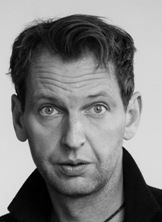
Martin Gschlacht, born in 1969, studied camera and production at the Film Academy in Vienna. In 1999, he and his colleagues founded the production company coop99. In 2009, two films, in which he was responsible for the camera work, competed at the film festival in Venice: Lourdes and Women Without Men. For his works, Gschlacht already received a lot of prizes, both nationally and internationally. For example for Stille Reserven, Goodnight Mommy, Crossing Boundaries and Breathing. Furthermore, he is one of the founders of Academy for Austrian Film.
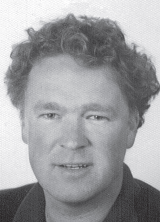
Christoph Thoke, born in 1960, is a German film and TV producer. He began his career working for the TV channels RTL 2 and ARTE. From 1996 he started working for Taunusfilm, where he managed international productions until he became a freelancer in 2003. His films were invited to more than 720 film festivals, including all internationally acclaimed A-list festivals, and were nominated for many awards, such as the European Film Prize, the Golden Globes and an Oscar for the best foreign film. Until today, Thoke has been awarded with approximately 160 prizes.
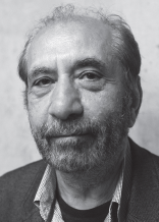
Houchang Allahyari, born in 1941 in Tehran, came to Austria in his youth. After finishing medical school, he has worked, among other things, as a therapist for young drug addicts for two decades. He currently has a medical practice in Vienna. Since 1970, he has also dabbled in the field of filmmaking. Following his early avant-garde films, he started cooperating with renowned production companies. Allahyari’s movies received numerous awards at various international festivals. Some of his most famous films are I Love Vienna (1991) and Die verrückte Welt der Ute Bock (2010).
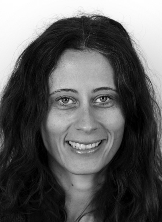
Film expert Tiziana Aricò studied Political Science, Journalism and Communication Science and Italian at the University of Vienna. After completing her Master’s degree, the journalist of Austrian and Italian descent worked for various print media and the radio. At the moment she mainly works in television, at the Austrian Broadcasting Company (ORF). When speaking of content, the cultural editor deals with the subject of film, since for her “there is nothing more exciting and diverse that offers the same amount of depth.“ Her second great passion is travelling.
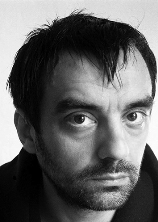
Screenwriter and director Goran Rebić was born in 1968 in Vršac, Vojvodina and grew up in Vienna, where he currently resides and works. He studied at the Film Academy Vienna. His short films, documentaries and feature films such as Domovina, During the Many Years, At the Edge of the World, The Punishment, Jugofilm or Donau were shown at many international festivals in Berlin, San Sebastián, Montréal, Moscow and Karlovy Vary. Rebić was awarded, among others, with the Vienna Film Prize, the Grand Diagonale Prize and the Audience Award of Mannheim-Heidelberg.

Nicole Albiez was born in 1980, in Vorarlberg, and currently lives and works in Vienna. She has studied journalism and theatre, film and media studies, and works as a journalist. At the same time she is editor in chief of the Austrian entertainment and cinema magazine DOT.magazine, Albiez also works as a designer for the weekly film quotation calendar Film Lovers Are Sick People. Among her previous employers were ORF and the production company Superfilm, with the Sendung ohne Namen. At the moment she also operates for the publisher Falter.
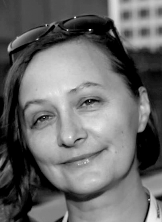
Sabine Hiebler, born in 1963, is an Austrian director and screenwriter. She studied at the University of Art and Design Linz. Since 1987, she has been collaborating on many projects with director and screenwriter Gerhard Ertl. Both became known through their experimental and avant-garde films, which were screened and awarded at many international film festivals, such as in Berlin and New York. Her third feature-length film, Chucks, was, amongst others, presented with the Audience Award at the Montréal World Film Festival.
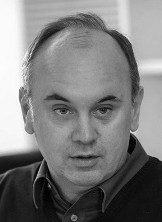
Danijel Hočevar war born in 1965 in Ljubljana, Slovenia. He is one of the most experienced and productive film producers from his country. With film director and producer Damjan Kozole, he established the first independent film production company in Slovenia, Emotionfilm, in 1986. They produced or co-produced together more than 30 feature films, including Spare Parts (2003) and An Episode in a Life of an Iron Picker (2013). The films he produced were screened internationally, at different film festivals, but also theatrically and on TV, and have received many awards.
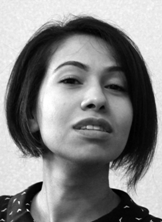
Samaya Asgarova attended the Azerbaijan Medical University until 2012 and is a graduate Doctor of Medicine. She took additional training and educational seminars in Kiev. Before making a 180 degree change in her life, Asgarova specialised in paediatric neurologist medicine. Meanwhile, Asgarova became responsible for international affairs at Azerbaijanfilm Film Studio and project manager for the Animation Advertising Agency in Baku. Today, Azerbaijanfilm Film Studio, established in 1920, is a part of the Ministry of Culture and Tourism of Azerbaijan.
The actress, photo artist and painter Inge Maux was born in Mettmach, Upper Austria in 1944. After attending drama school Krauss in Vienna, various acting engagements brought her, amongst others, to the Schauspielhaus Köln, to the Zürich playhouse, to the New Residence Theatre in Munich, to the Zürich Opera House, to Theater an der Wien and Raimund Theater. Maux was ensemble member of the Volkstheater in Vienna and also took on various roles in film and TV. Her paintings and photos have been exhibited in Hamburg, Gstaat, Wien and more.
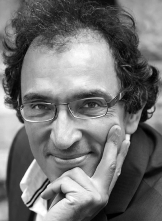
Matej Mináč, born in 1961, is a Slovak author, producer and director, whose films have already been sold in at least 60 countries and screened at over 320 international film festivals, where he has won more than 70 awards. For the second part of his trilogy on the British Sir Nicholas Winton, who saved hundreds of children from the Nazis, Mináč even received an Emmy Award. At the LET’S CEE Film Festival, he will present his latest documentary Through the Eyes of the Photographer about his mother, Zuzana Mináčová.
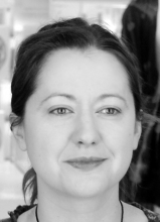
Marina Richter, born in Belgrade, studied Scandinavian studies at the universities of Belgrade, Gothenburg and Vienna. She works as a foreign correspondent for the leading Serbian daily paper Politika, in the cultural department in Austria. Since May 2016, she regularly writes film critiques for the Croatian internet platform Monitor. Her stories have been published in Alba (Sweden), Artmagazin and Morgen (Austria), as well as in the Estonian culture magazine Sirp. For a few years now, she has also been operating as a dramaturgical consultant.
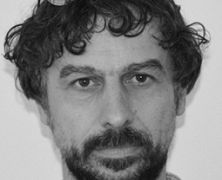
The Slovenian director Jan Cvitkovič was born in 1966. He dropped out from his physics studies at the University of Ljubljana after one year and took to travelling across Israel, Egypt and East Africa. After his return he studied archeology in Ljubljana. Upon graduating, he started to make films. Jan Cvitkovič enjoyed large successes really soon. Thus, he was awarded in Venice for his debut film Bread and Milk and in San Sebastián for his comedy Gravehopping. His new film Šiška Deluxe can be seen within the series “Highlights: Forever Friends” at the LET’S CEE Film Festival this year.
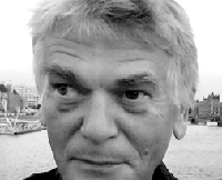
Peter Roeshler is a well-known cameraman and producer in Austria. After studying at the University of Music and Performing Arts in Vienna he worked as project manager and organized Kenya Newsreel in Nairobi, Kenia. In 1980 he founded Peter Roehsler Filmproduktion, which was transformed into Nanookfilm GmbH in 1988. While working both as a cameraman and a producer, Roehsler collaborated with numerous renowned directors like Houchang Allayari (Der letzte Tanz, Villa) and Peter Kern (Haider lebt – 1. April 2021, Der letzte Sommer der Reichen).
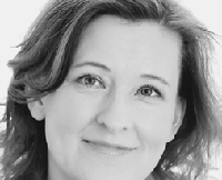
Since 1994, Ursula Wolschlager has worked as producer, production manager and dramatic adviser in cooperation with filmmakers such as Michael Glawogger, Nathalie Borgers, Christian Frosch, Bakhtiar Khodoynazarov and Barbara Albert in countries including Austria, Russia, Greece, the US, Tajikistan and Egypt. She founded the film production and development centre Witcraft Szenario OG in 2008, where films such as Die Vaterlosen, Ma Folie, Gangster Girls and Roque Dalton, erschießen wir die Nacht came into being. Besides having won many international awards for films that she was involved in, Wolschlager received the Carl Mayer Script Prize for her writing.
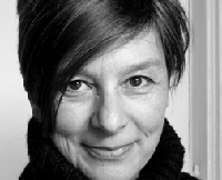
Born in Vienna, Katharina Wöppermann studied stage design at the Academy of Fine Arts Vienna. Already during her studies she worked as a film set designer. Wöppermann was so far responsible for the production design and sometimes even costume design of more than 50 feature films, primarily author films for cinemas at home and abroad, such as Amour Fou (2014), Finsterworld (2013), Lourdes (2009) and Klimt (2006). She received an award for Best Costume Design at Diagonale for Stillleben (2011) and the Austrian Film Prize for Best Production Design.
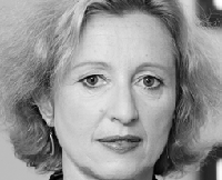
Since 2005 Barbara Eppensteiner has been the programme coordinator for OKTO, Austria’s first non-commercial, participatory TV-station. After her studies in Klagenfurt, Vienna and London, the media educator and media scholar has been the directress of the Viennese Media Centre from 1987 to 2010. There she co-developed “wienervideo&filmtage” and “Internationales Filmfestival für junge Leute”. Besides being repeatedly responsible for the newcomer programme at “Diagonale” and juror at various film festivals, Eppensteiner is also member of the Youth Media Commission of the Austrian Federal Ministry of Education, Science and Culture.
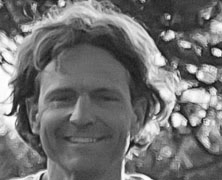
Cameraman and Director Martin Putz was born in 1967 in Vienna. He entered the film industry as an assistant editor and lighting technician. Since the beginning of the 1990s he has been working as a cinematographer for documentaries, feature films, short films and animated films. The Kafkaesque, poetic silent film Copy Shop, realised by himself and Virgil Widrich, was nominated for Best Short Film at the Oscars in 2002. Together with Anja Salomon he filmed the two documentaries The 727 Days Without Karamo and Spiel mit mir. He was furthermore responsible for the camera work in Double Happiness, Toward Nowa Huta and Wolken über dem Paradies.
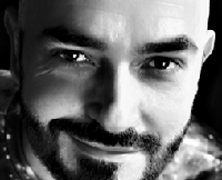
Marcin Szczygielski was born in 1972 in Warsaw. He writes novels and theatre plays; and previously he has been a successful graphic designer and journalist. In 2003, he published his debut novel PL-BOY, in which he used his own experiences from the Polish Playboy editorial department in a satirical way. The book turned out to be a bestseller. His subsequent works have made him one of the most widely read authors in Poland. Especially Berek (2007) has caused a lot of commotion. In 2009, he began writing books for children. For his titles Omega, Behind the Blue Door (2010), The Black Mill (2011) and Ark of Time (2013), he has received many awards.
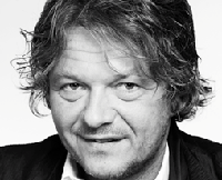
The director, producer and actor Dragan Bjelogrlić was born in Opovo, Serbia in 1963. At the age of fifteen he stood in front of the camera for the first time. Duriing the 1980s, he became an established actor of the Yugoslavian cinematic and TV landscape. Montevideo: Taste of a Dream was his directing debut and – similar to the sequel See You in Montevideo – a tremendous success. Dragan Bjelogrlić, who runs the production company Cobra Films together with his older brother Goran, was lastly seen in 2014 as an actor in Monument to Michael Jackson which was presented at last year’s LET’S CEE Feature Film Competition.
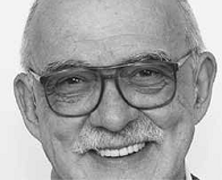
Kurt Ockermüller (born in Vienna in 1948) studied Film and Television at the University for Music and Performing Arts as well as Philosophy and Theatre Studies at the University of Vienna. He has been directing for TV, theatre and cinema productions since 1978 and producing TV and cinema commercials since 1980. Ockermüller has directed several episodes of the cult TV shows Schlosshotel Orthand Ein echter Wiener geht nicht unter. His feature film Echte Wiener - Die Sackbauer-Sagais ranking fourth in attendance figures since 1981.
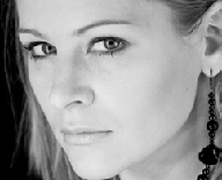
Heidelinde Pfaffenbichler is an Austrian actress thathas already appeared not only in many Austrian andGerman Film- and TV-productions but she also performedon many theatre stages. Born in Vienna, shestudied at the University of Music and PerformingArts Vienna and also completed a classical singingeducation. She played in films which were showedin theaters; Die Spur im Schnee, Echte Wiener – DieSackbauer-Saga and Echte Wiener – Die Deppat’nund Gspritzt’n. Furthermore she trod the boards oftheaters such as Theater in der Josefstadt, Schauspielhaus,Volkstheater and Schillertheater Berlin.

Suzanne Ballantyne is the Head of Programming of the Raindance Film Festival in London, the largest Independent Film Festival in the UK. She is a trained actress and has worked as a performer in the UK and Canada. Her film career began with her critical approach to screenplays and films for independent producers and film festivals. She has worked for the Raindance Film Festival as Senior Programmer since 1995. She co-founded the British Independent Film Awards in 1998 and produced the film Deadly Virtues: Love.Honour.Obey. She now acts as independent script and programming consultant.
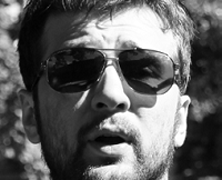
Vadym Shapran is an Ukranian screenwriter, director, producer and cutter. He was born in Kiev in 1991, where he studied at the university of economics. He already countributed to over hundred film projects. In 2012 he founded the production studio Fatal Frame Studio, respectively Avision Media. He earned several international awards for directing music clips, trailers and animated films. Lately his production Movies Unite People Through [E]motions has won the competition for the LET’S CEE Trailer, which was organized in cooperation with the TV station OKTO and Cineplexx International.
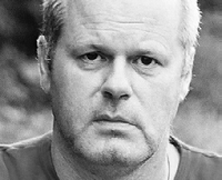
Andreas Ungerböck was born in 1960 and is an Austrian author and co-editor of the film magazine ray. He studied journalism and theatre studies in Vienna, and wrote his dissertation on Rainer Werner Fassbinder in 1988. He curated numerous retrospectives for Asian cinema and is also the author of books such as Spike Lee (2006), Revanche - Ein Film von Götz Spielmann (2009), Ang Lee und seine Filme (2009), Peter Patzak (2009)and Real America (2012). He was the editor of the Viennale catalogue from 1994 to 2002.
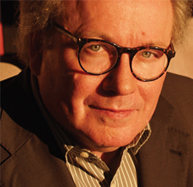
GUNTHER BAUMANN
Gunther Baumann is the editor in chief at FilmClicks. He was born in 1952 in Cologne and moved to Vienna at the age of sixteen. After graduating from secondary school, he started working as a journalist for Die Presse. At age twenty-six, he founded the Austrian music and HiFi magazine Vox, followed by many years of working as an editor on film and culture and as a reporter for the Kurier. In 2006 he took lead of the film department at the daily newspaper Österreich. He founded FilmClicks in 2013. Baumann also wrote two books and translated several theatre plays and musicals.
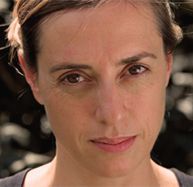
Gabriele Kranzelbinder was born in Klagenfurt in 1968. She studied law in Vienna, Paris and Rome. In 1994, she also started organising film, theatre and art projects and working in film distribution and on several film productions in Austria and Italy. After that she proceeded to make a name for herself as an independent producer of several short films and developer of feature film and documentary materials. Numerous feature films, documentaries and experimental films have been completed under her under her patronage, many of them in cooperation with international partners. In 2007, she founded KGP Kranzelbinder Gabriele Production.
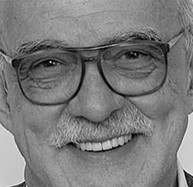

English-born Anna Franklin is the current editor-in-chief at Film New Europe (www.filmneweurope.com), one of Europe’s larges news agencies on the film industry, based in Warsaw. Franklin looks back at a colourful and successful career: She worked as a journalist for the BBC and Channel Four, as well as The Times and The Guardian. In London, she organised local culture news and worked as an advisor for the Cannes Film Festival, the Moscow International Film Festival and the Denver Film Festival. She has also led her own TV production company in Prague for several years.
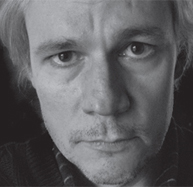
Andreas Horvath is an Austrian photographer and filmmaker. He was born in 1968 in Salzburg and studied photography in Vienna and Multimedia Art in his home city. In the 1990s, when he also published several picture volumes, he worked predominantly as a freelance photographer. Since 1999 he has been making documentaries, in which he alone is responsible for the directing, filming, editing and, partly, for the music as well. His work was sponsored by different scholarships and received acknowledgments such as first prices at film festivals in Chicago, Saarbrücken and Karlovy Vary.
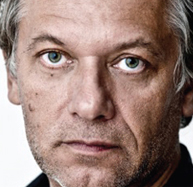
Cameraman and photographer Jerzy Palacz was born in Poland and learned his handiwork at the legendary National Film School in Łódź and at the Vienna Film Academy. He has been living and working in Austria and Luxemburg since 1981. Palacz, who filmed several times with Ulrich Seidl and Goran Rebić, is a member of the Austrian Association of Cinematographers (AAC). He often worked in the advertising industry and recently won the Austrian Film Academy’s camera award 2014 for Shirley, Visions of Reality.
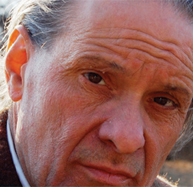
Clemens Aap Lindenberg was born in Vienna in 1961. After taking private acting lessons with instructors such as Wilfried Baasner and Dorothea Neff, he passed his final exam to become a stage actor - the Buhnenreifeprufung. He then acted at the Vienna Festival, the Ensemble Theatre and the Theater in der Josefstadt in Vienna, the Tyrolean State Theatre in Innsbruck, but also in severals films, most recently in Marko Nabersnik's Die Wälder sind noch grün. Lindenberg, who was nominated for a Nestroy Award in 2012, also works frequently in Germany as a film and theatre actor and voice-over speaker.
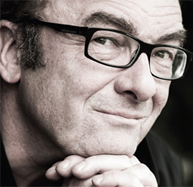
Robert Menasse was born in Vienna in 1954. He studied philosophy, german philology and political sciences in Vienna, Salzburg and Messina. He worked as a guest lecturer at the University of Sao Paulo, Brazil, from 1981 to 1988. Since his return, he has been working as a writer of essays and a novelist mainly. Menasse worked as a Writer in Residence at the New York University and Artist in Residence of the city of Amsterdam. His most recent work was Der Europaische Landbote. Die Wut der Burger und der Friede Europas, published by the Zsolnay Verlag in 2012. In the same year, the documentary Crossing Borders - narrated by Robert Menasse was finished.
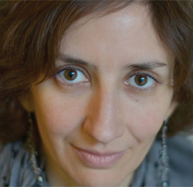
Producer Nastya Velskaya was born in 1974 in Moscow. She studied Russian language and literature at the Lomonosov Moscow State University and studied film production at the Gerasimov Institute of Cinematography. Velskaya has worked for the TV and movie industry for 15 years. She was an executive producer for the Russian adaptions of international show formats like Who Wants To Be A Millionaire, The Weakest Link, Pop Idol and Ugly Betty. She has been running her own production company since 2012, focusing on documentaries.
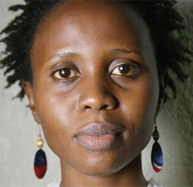
Actress Umuhire Eliane was born in 1987 in Kigali, Rwanda. While studying economics at the National University in Butare, she took part in many festivals, workshops and performances as a member of the theatre group “Les Stars du Théatre”. She returned to Kigali in 2008, where she joined Rwanda’s number one theatre group “Mashirika”. Since then, she has made a name for herself with first leading roles in stage performances, TV shows and radio dramas. She has been working together with Belgian actress and director Carole Karemera, who was also born in Rwanda, since 2010.
Ernst Schmiederer is a journalist (columnist for ZEIT, among others) and media producer. He published the book IMPORT/EXPORT: Lauter Ausländer and created the project WIR. BERICHTE AUS DEM NEUEN OE. He also operates the blinklicht media lab and the internet culture portal importundexport.at.
Sasha Wieser is one of the founders and the executive director of EastWest Filmdistribution. He has a lot of experience in the film business, having worked as a film director, and now specialises on the distribution of new European films. In 1989 he founded the post production company Synchro Film & Video.
Blerta Zeqiri is an award-winning film director, producer and scriptwriter from Kosovo. Her short film The Return (2012) won the short film award at the Sundance Film Festival and the Heart of Sarajevo at the Sarajevo Film Festival. She is a member of the European Film Academy.
Stefan Adrian works at the German Film Institute (DIF) and has been the executive director of the goEast film festival. After finishing his studies in Film Science, Sociology and Business Management, he worked for several production companies and also designed international fashion shows and corporate events.
Olivera Stajić was born in Austria and grew up in Bosnia. She studied History as well as Journalism and Communication Science in Vienna and currently works as chief editor of daStandard.at and as managing editor at derStandard.at.
Paul Zajacz has been working for EU XXL FILM since 2010. Before that, he was a research associate at the Ludwig-Boltzmann Institute for European Law. As a student, the law scientist who finished his court practice at the Higher District Court of Vienna (Oberlandesgericht Wien) worked as an assistant director at the Viennese Scala theatre and the Schauspielhaus.
Saša Lošić is one of the most famous composers from the Balkans and leading man, song writer and arranger of the legendary rock band Plavi Orkestar. The composer of pop and ethno music writes scores for theatre pieces, documentaries and feature films.
Ed Moschitz has been working for Austrian state television ORF since 1996. During that time he shaped more than 100 episodes of Am Schauplatz as a reporter and editorial journalist. He is currently teaching television reporting at the University of Krems. His first documentary Mama Illegal won several international awards.
Michael Omasta works as an editor on film for Vienna’s city newspaper Falter and is a board member of SYNEMA, Society for Film and Media. He published several books on films – among others on Alexander Hackenschmied, Carl Mayer, Fritz Rosenfeld, Anna Gmeyner, John Cook, Wolf Suschitzky, Claire Denis and Romuald Karmakar.
Wiesia Starka is a Polish costume designer who worked with the likes of Andrzej Wajda, Agnieszka Holland and Krzysztof Kieślowski. Her husband, Academy Award winner Allan Starski, also worked on several of these projects. She is currently teaching Costume History at the Warsaw Film School.
Tomasz Raczek, born in Warsaw in 1957, is a film critic, journalist and publisher. After completing his drama studies at the Theater Academy in Warsaw, he has initiated and presented several television and radio broadcasts and has written articles for various professional journals. Raczek was also the publisher and first editor of the Polish edition of Playboy. As program director of the publishing house Gruner + Jahr Polska he introduced, among others, the weekly magazine Gala to the Polish press market. He used to be the literary director of several Polish Theaters and deputy director of Poland’s second public-service television channel. In 2009 Tomasz Raczek founded two TV channels and a digital radio channel featuring film music, which he headed until January 2011. He is also the director of his own publishing house, Latarnik, which he founded in 2002.
Sitora Alieva was born in Dushanbe in Tajikistan. She began her acting career in front of the camera at the age of seven. After graduating in screenwriting and film history at the Russian State University of Cinematography VGIK in Moscow, she worked as an actress and assistant in a cultural institute and then as an editor at the Tadjikfilm studio. From 1991 to 1993, she worked as a journalist at the Film Foundation in Moscow, and soon after as the assistant of Daniel Dondurai for the film magazine Iskusstvo Kino, where she worked until 1996. In 1994, Alieva joined the team of the International Film Festival in Sochi, where she started to hold top positions from the beginning of 1999. Since 2005, she has been the festival’s programme director as well as the art director of the Open Russian Film Festival Kinotavr, Russia’s biggest national film festival.
Rubina Möhring is an Austrian journalist, born in Berlin. She studied languages in Cambridge, Geneva and Istanbul, German studies and sociology in Freiburg im Breisgau and history in Istanbul and Vienna, where she obtained her doctorate degree. She began her career as a journalist for the daily newspaper Die Presse and was editor-in-chief for the areas culture and science at ORF and 3Sat until 2010. Nowadays Rubina Möhring is head of Reporters Without Borders Austria, an international NGO advocating freedom of the press and freedom of information. She is also a historian, a journalist and the publisher of the new magazine press. freedom.now – Zeitschrift für freie Information. Apart from being the author of numerous publications and articles on topics related to social and media policy, she is an university lecturer at the Universities of Vienna, Innsbruck and Krems and also a blogger at derstandard.at since 2011.